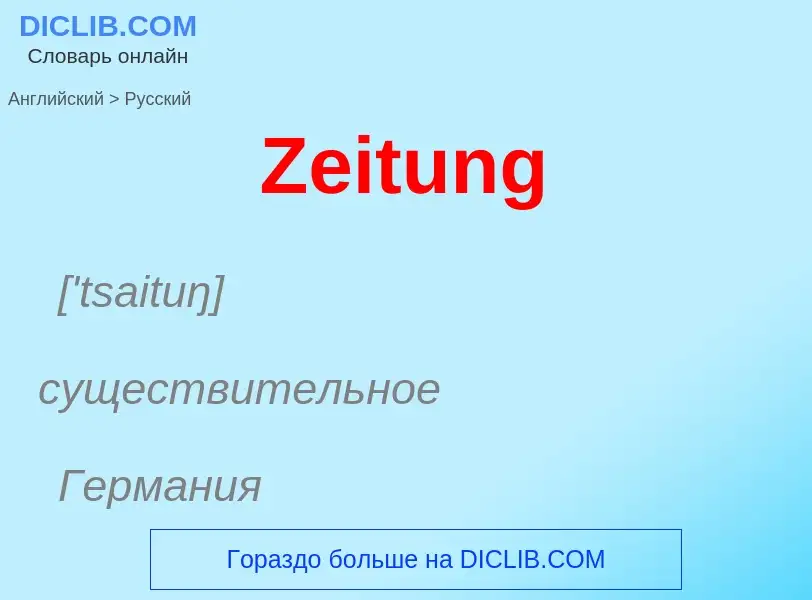Μετάφραση και ανάλυση λέξεων από την τεχνητή νοημοσύνη ChatGPT
Σε αυτήν τη σελίδα μπορείτε να λάβετε μια λεπτομερή ανάλυση μιας λέξης ή μιας φράσης, η οποία δημιουργήθηκε χρησιμοποιώντας το ChatGPT, την καλύτερη τεχνολογία τεχνητής νοημοσύνης μέχρι σήμερα:
- πώς χρησιμοποιείται η λέξη
- συχνότητα χρήσης
- χρησιμοποιείται πιο συχνά στον προφορικό ή γραπτό λόγο
- επιλογές μετάφρασης λέξεων
- παραδείγματα χρήσης (πολλές φράσεις με μετάφραση)
- ετυμολογία
Zeitung - translation to ρωσικά
['tsaituŋ]
существительное
Германия
газета
Βικιπαίδεια
The Kreuzzeitung was a national daily newspaper published between 1848 and 1939 in the Kingdom of Prussia and then during the German Empire, the Weimar Republic and into the first part of the Third Reich. The paper was a voice of the conservative upper class, although it was never associated with any political party and never had more than 10,000 subscribers. Its target readership was the nobility, military officers, high-ranking officials, industrialists and diplomats. Because its readers were among the elite, the Kreuzzeitung was often quoted and at times very influential. It had connections to officials in the highest levels of government and business and was especially known for its foreign reporting. Most of its content consisted of carefully researched foreign and domestic news reported without commentary.
Its original name was officially the Neue Preußische Zeitung (New Prussian Newspaper), although because of the Iron Cross as its emblem in the title, it was simply called the ‘Kreuzzeitung’ (Cross Newspaper) in both general and official usage. In 1911 it was renamed the Neue Preußische (Kreuz)-Zeitung and then after 1929 the Neue Preußische Kreuz-Zeitung. Between 1932 and 1939 the official title was simply the Kreuzzeitung. From its first issue to its last, the newspaper used the German motto from the Wars of Liberation "Forward with God for King and Fatherland" as its subtitle. It had editorial offices in various cities in Germany and abroad. Its headquarters was in Berlin.
The National Socialists took over the Kreuzzeitung on 29 August 1937, and the last issue was printed on on 31 January 1939.









